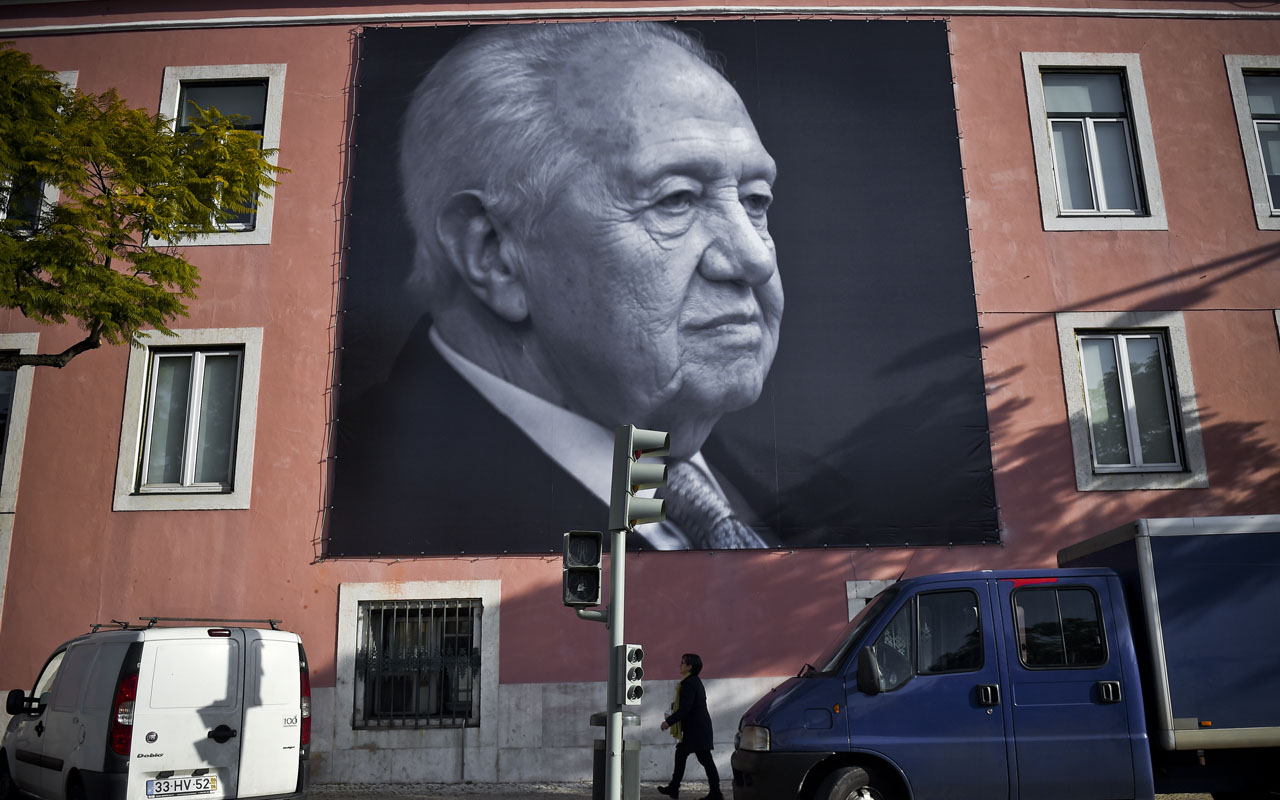
Mario Soares, widely seen as the father of Portugal’s modern-day democracy, was a towering figure in the country’s political scene who spearheaded its entry into the European Union. Soares, the founder of Portugal’s Socialist party who died on January 7, 2017 at the age of 92, spent decades in politics, serving as foreign minister, prime minister and president as well as a European lawmaker./ AFP PHOTO / PATRICIA DE MELO MOREIRA
Thousands paid their last respects Monday to Mario Soares, widely seen as the father of Portugal’s modern-day democracy, as his funeral cortege wound its way across Lisbon to applause from mourners.
The founder of Portugal’s Socialist Party, who served as president from 1986-96, died in hospital on Saturday.
Monday was the start of three days of national mourning.
Escorted by about 30 police motorcyclists, the hearse containing his coffin, draped in the national flag, left his family home in Lisbon, where mourners laid red roses — the Socialist Party symbol — on a journey to the capital’s 16th century Hieronymite monastery.
It was there that Soares, then prime minister and soon-to-be president, signed Portugal’s treaty of accession to what was then the European Economic Community, a forerunner of the European Union.
His body is to lie in state in a monastery chapel until midnight.
“Mario Soares will go down in history for his fight for freedom and democracy. We must thank him and follow his example,” said Goncalo Garcia, a 16-year-old who watched the procession.
He will be buried on Tuesday at the Prazeres cemetery in the west of the capital, alongside his wife, actress and philanthropist Maria Barroso, who died in July 2015.
Portugal’s current Prime Minister and fellow Socialist Antonio Costa said Saturday that the country had lost “someone who has so many times been the face and the voice of our freedom, for which he fought all his life”.
“It’s because of him that we escaped communism, Portuguese people didn’t want it,” said Maria Albuquerque, a 76-year-old shopkeeper who came to sign a condolence book at the Socialist Party headquarters.
Soares was admitted to hospital in Lisbon on December 13, and although his condition initially showed some signs of improvement, he later fell into a deep coma and never recovered.
The hospital did not reveal the precise cause of death, but relatives say Soares never fully overcame a spate of illnesses in 2013.
His health further deteriorated after his wife’s death.



